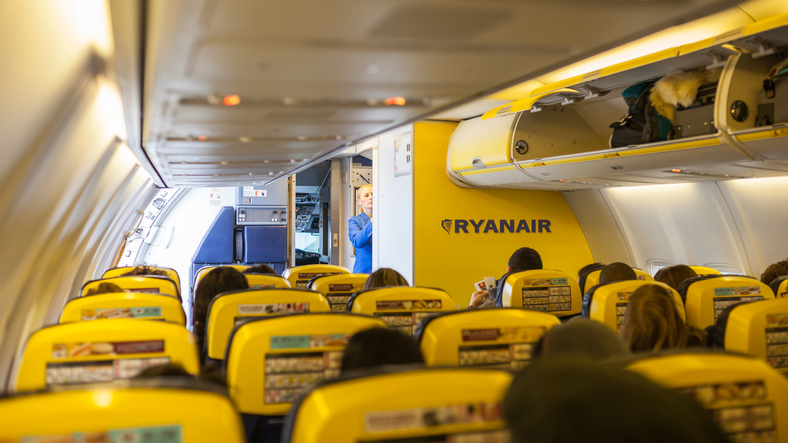Budget carrier Ryanair was ordered to withdraw publicity describing it as a “low-CO2 emissions airline”, as Britain’s main advertising watchdog labelled the claim misleading.
Ryanair Holdings Plc’s print and broadcast adverts last September made environmental claims that were poorly substantiated and “must not appear again in their current forms”, the Advertising Standards Authority (ASA) ruled.
Under Chief Executive Michael O’Leary, the carrier has tangled repeatedly with advertising authorities, often over discount terms and conditions, and on Wednesday struck an unabashed tone.
“Ryanair is delighted with its latest environmental advertising campaign, which communicates a hugely important message for our customers,” spokeswoman Alejandra Ruiz said.
Under pressure from policymakers and “flight-shaming” campaigners, airlines are scrambling to convince consumers they are taking action to mitigate environmental impacts, even as their traffic grows.
Low-cost carriers tend to emit less carbon dioxide per passenger than legacy airlines because they operate younger aircraft on point-to-point routes with fewer empty seats. But they also account for a bigger share of total emissions growth.
Ryanair, which carried 152 million passengers in 2019 and is targeting 200 million by mid-decade, based its green message on emissions per passenger, per kilometre. Its 69 grammes of CO2 per passenger-km come in 23% below the average of Lufthansa , British Airways parent IAG, Air France-KLM and easyJet, its website says.
In absolute terms, Ryanair’s 9.9 million tonnes of CO2 output placed it among Europe’s top 10 emitters in 2018, a group dominated by coal-fired power stations, according to EU data.
In radio and television adverts, the company “did not give any information on the metric used” to underpin its self-description as a “low-CO2 emissions airline”, the ASA found.
The print version did outline the calculation but failed to acknowledge Ryanair’s higher seating density as a contributor or substantiate a claim to be Europe’s “lowest-emissions airline”, the watchdog ruled, upholding complaints against all three ads.
“We told Ryanair to ensure that when making environmental claims, they held adequate evidence to substantiate them and … that the basis of those claims were made clear,” it said.
Transport & Environment, a European campaign group, said the decision offered “a reminder that the aviation sector’s climate impact is soaring because of a decades-long tax holiday and almost zero regulation of their pollution.”
A spokeswoman for the environmental organisation added: “Ryanair should stop greenwashing and start doing something to tackle its sky-high emissions.”
Ryanair said the same advertising message had been used in 10 European countries. “The message was approved in other markets and we provided all the supporting data they required,” Ruiz said.






